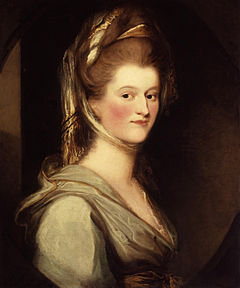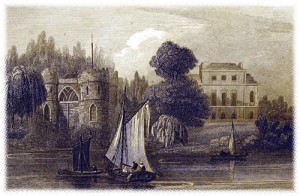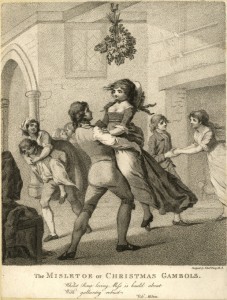On 15 January 1821, Douce wrote in his Book of Coincidences that he “had had a strange dream about Lady Craven”. Elizabeth Berkeley (1750-1828), who would become margravine of Brandenburg-Ansbach-Bayreuth after her second marriage following the death of Lord Craven in 1791, was a travel writer and society hostess who counted Samuel Johnson and Horace Walpole among her numerous acquaintance:
Unfortunately, Douce did not elaborate on his dream (the Book of Coincidences contains references to three further “strange dreams” involving a cross-bow eaten as a broiled fish, the Bishop of Norwich, and a disembodied head “on which a large quantity of rouge had been coarsely laid”). But he mentioned Lady Craven again in September of the same year. After a visit to Dr Fryer in Turnham Green, Douce “had purposely walked to Brandenburg house”, where the margravine lived before it was rented by Queen Caroline:
While sorting out some papers on his return home that evening, “Lady Craven’s novel of Kinkvervankotsdarsprakengotchderns turned up accidentally which I read”. The full title of the novel in question is Modern anecdote of the ancient family of the Kinkvervankotsdarsprakengotchderns: a tale for Christmas 1779 and the third edition, bequeathed by Douce to the Bodleian, was published in 1781. There is nothing Christmassy about the story itself, but the author hoped that the dedicatee, Horace Walpole, would consider her “little book” as “an acceptable Christmas box”.



